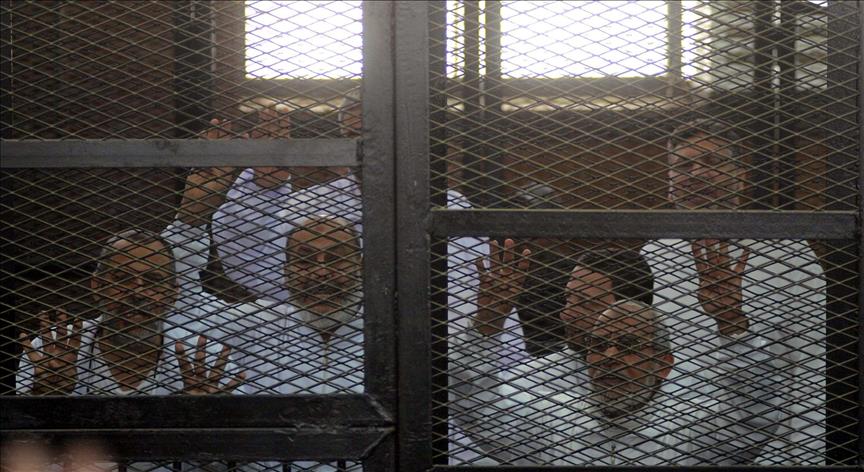Death sentences 'decision,' not verdict: Egypt
The court has referred the mass death sentence – which has sparked international outrage – to Egypt's grand mufti for approval.

CAIRO
The Justice Ministry on Tuesday described as a "decision" – not a "verdict" per se – Monday's death sentences handed down against 529 supporters of ousted president Mohamed Morsi.
"The presiding judge issued a decision, not a verdict, after hearing eyewitnesses and has called for taking the opinion of the mufti of the republic [Egypt's highest religious authority] before confirming the death sentences," the ministry said in a statement, a copy of which was obtained by Anadolu Agency.
"The opinion of the Mufti isn't mandatory; when case documents are referred back to court, the judge has the right to uphold his decision or change it," the statement read.
A criminal court in the Upper Egyptian province of Minya on Monday condemned 529 Morsi supporters to death while acquitting 16 others.
The defendants, including 397 being tried in absentia, were convicted of committing acts of violence in Minya last August after security forces in Cairo and Giza violently dispersed two pro-Morsi sit-ins, killing hundreds of protesters in the process.
The court has referred the mass death sentence – which has sparked international outrage – to Egypt's grand mufti for approval.
"The defendants whose sentences were referred to the mufti for confirmation were tried before an ordinary court and a normal judge, not a summary court," the ministry argued.
It went on to assert that the defendants had the right to appeal the verdicts.
"And the public prosecution has the right to challenge the ruling even if it isn't appealed at the Court of Cassation," the ministry added.
The ministry pointed out that the Court of Cassation "has the right to either reverse the ruling or refer it to another court for examination."
"Even if the new court upholds the death sentence, the defendants could, for the second time, appeal the ruling. In this event, the Court of Cassation would decide the case," the ministry added.
According to the ministry, most of those sentenced to death had been tried in absentia.
"Therefore if they would show up in court they have the right to talk to the court panel and the jury must listen to them and would make up a new opinion, the ministry said.
It added: "This means looking into the case from the very beginning and starting new litigation procedures before the same court."
By Mohamed Sabry
englishnews@aa.com.tr
Anadolu Agency website contains only a portion of the news stories offered to subscribers in the AA News Broadcasting System (HAS), and in summarized form. Please contact us for subscription options.

